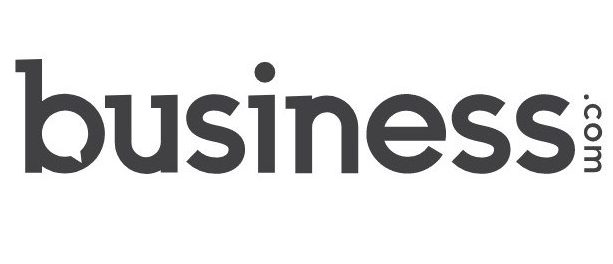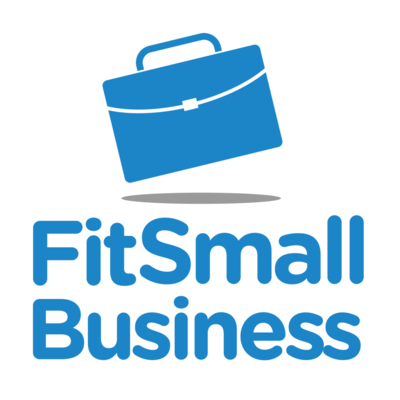Reviewing the Tech Performance of the NLJ 500 Law Firms
Date: November 12, 2024

Here at 9Sail, we are dedicated to helping law firms navigate the complexities of digital marketing. Today, we’ll be diving into crucial aspects of website performance, focusing on Core Web Vitals, overall website performance, and Content Management Systems (CMS). This blog serves as a supplementary piece to our comprehensive white paper, where we analyze the digital presence of the NLJ 500 law firms in the US.
In the white paper, we delve deeper into how these firms perform across these vital areas, highlighting best practices, common pitfalls, and actionable strategies to enhance your online presence. By reading the full white paper, you’ll gain valuable insights into the current landscape, discover how your firm compares, and learn practical steps to optimize your website for better user experience and higher search engine rankings.
Core Web Vitals
Core Web Vitals are a set of specific factors that Google considers important in a webpage’s overall user experience. They include three main components: Largest Contentful Paint (LCP), First Input Delay (FID), and Cumulative Layout Shift (CLS). For law firms, especially the top 500 in the US, these metrics are critical in ensuring their websites provide a seamless user experience.
Our assessments revealed that many top law firms struggle with key Core Web Vitals metrics. Particularly, they perform poorly in Largest Contentful Paint (LCP) and serving images in next-generation formats. Only 12.6% of firms received passing scores for LCP, indicating a widespread need for better optimization practices. This poor performance in LCP means that users often wait longer for the largest element on the page to load, leading to frustration and potential loss of clients. Additionally, only 28.6% of the firms serve images in next-gen formats, which can significantly enhance load times and decrease user experience.
Despite these challenges, law firms generally perform well in areas such as contrast ratio for readability and proper use of the [lang] attribute. Approximately 48% of firms passed contrast ratio measurements, ensuring text is readable against background colors, which is essential for accessibility. Nearly all firms (99.4%) used the [lang] attribute correctly, enhancing both accessibility and indexing by search engines.
The data further reveals that mobile optimization remains a significant hurdle. While 60.2% of firms received passing marks on Core Web Vitals for mobile, 33.2% failed. Desktop performance was about the same, with 62.4% receiving passing scores. Given the increasing number of users accessing websites via mobile devices, law firms should be spending particular care on optimizing for mobile performance.
Enhancing Core Web Vitals
To improve Core Web Vitals, law firms should consider the following strategies:
- Optimize Images: Serve images in next-gen formats like WebP and ensure they are appropriately compressed.
- Improve Server Response Times: Reduce the time it takes for the server to respond to requests by using faster hosting solutions or optimizing server configurations.
- Minimize JavaScript: Reduce and defer non-essential JavaScript to enhance load times.
- Use Lazy Loading: Implement lazy loading for images and videos to improve initial page load performance.
Website Performance
Website performance is a critical aspect that influences user experience, search engine rankings, and overall website success. For the top 500 law firms, maintaining optimal website performance is essential for retaining visitors and converting them into clients.
Mobile and Desktop Performance
Our research indicates that mobile site performance among NLJ 500 firms is notably poor, with an average PageSpeed Insights (PSI) score of 47. This is concerning given Google’s emphasis on mobile optimization. Furthermore, 60% of firms fail to meet PSI benchmarks for mobile. This underperformance can lead to higher bounce rates, lower user engagement, and diminished search engine rankings.
Desktop performance, while better than mobile, is still suboptimal. The average PSI score for desktops is 68, with 72.8% of firms achieving only moderate scores. This suggests that while desktop experiences are relatively smoother, there is still room for improvement to meet the higher standards set by Google’s performance metrics.
Key Factors Affecting Load Speed
Several factors influence website load speed and performance:
- Server Response Time: Faster servers and efficient server-side code can reduce the time it takes for the server to respond to the user’s initial request.
- Code Efficiency: Clean and efficient code loads faster. Minifying code by eliminating redundancies and unnecessary characters can improve load speed.
- File Sizes: Large files, particularly high-resolution images, can significantly reduce load speed.
- Caching: Storing parts of a website on the user’s browser can reduce the amount of content that must be downloaded in future visits, improving load times.
- Number of Requests: Each element on a webpage requires a separate request to the server. Reducing the number of requests through methods like lazy loading can enhance load speed.
Enhancing Website Performance
To enhance website performance, law firms should focus on:
- Optimizing Media: Compress and use next-gen formats for images and videos.
- Improving Server Response: Choose high-performance hosting solutions and optimize server configurations.
- Minimizing HTTP Requests: Use techniques like combining files and lazy loading to reduce the number of requests.
- Utilizing Caching: Implement browser caching to store frequently accessed elements locally.
Content Management Systems (CMS)
A Content Management System (CMS) is a tool that allows users to create, edit, organize, and publish content without requiring specialized technical knowledge. The choice of CMS can significantly impact a law firm’s ability to maintain an effective online presence.
Custom CMS Solutions vs. Off-the-Shelf Platforms
Among larger law firms, custom CMS solutions are prevalent, reflecting the need for tailored functionalities that off-the-shelf platforms may not provide. Custom CMSs are designed to meet the specific needs of the firm, providing unique features and integrations that support their workflows. This approach often involves relationships with vendors who can provide ongoing support and customization.
While WordPress is highly popular across many industries, it is less dominant among top law firms. Only 26.6% of these firms use WordPress compared to its broader market share of 62.5%. This lower adoption rate may be due to the need for more robust security, customization, and performance features that large law firms require.
Other CMS Options
In addition to custom solutions, several other CMS platforms are in use among law firms, including:
- Wix: Known for its ease of use and drag-and-drop interface.
- Squarespace: Popular for its design-oriented approach and user-friendly features.
- Joomla: Offers flexibility and extensive customization options.
- Drupal: Known for its powerful features and scalability.
- TYPO3: A robust enterprise-level CMS with extensive capabilities.
Each of these platforms offers unique advantages, but custom CMS solutions remain the preferred choice for larger firms due to their ability to provide tailored functionalities and meet specific needs.
Choosing the Right CMS
When selecting a CMS, law firms should consider factors such as:
- Ease of Use: The CMS should be user-friendly and allow non-technical staff to manage content effectively.
- Customization: The ability to tailor the CMS to meet specific needs is crucial.
- Security: Ensuring the CMS provides robust security features to protect sensitive data.
- Support and Maintenance: Access to reliable support and ongoing maintenance is essential for keeping the website running smoothly.
The top 500 law firms in the US face unique challenges and opportunities in optimizing their websites for performance and user experience. By focusing on improving Core Web Vitals, enhancing website performance, and choosing the right CMS, these firms can ensure they provide a superior online experience for their clients and prospects.For any and all questions about the above data, please contact us here at 9Sail – we’re always looking to help law firms reach their next goal!
















